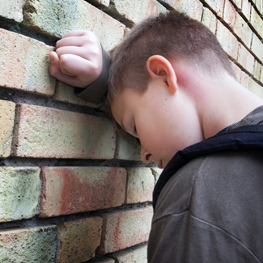
Nobody wants to imagine this, but there is a high likelihood that during your parenting career, a child (not necessarily your own) will disclose that they have been sexually abused. Statistics indicate that 1 in 3 girls and 1 in 5 boys will experience sexual abuse before the age of 18. While these numbers are staggering, what is even more disheartening is that around 50 per cent of abuse goes undisclosed and unreported. Therefore, there may be times when you suspect abuse, or are concerned about a child’s behaviors, but aren’t sure how to proceed because there has been no disclosure.
Research indicates that the No. 1 factor in determining how a child will ‘recover’ from abuse is the response they receive when they first disclose. In other words, a child who is believed and supported will likely fare better during treatment than a child who receives an unsupportive or disbelieving response. Sadly, often children tell their stories many times before they receive help.
Sometimes children disclose directly, but many disclosures are indirect and the abuse manifests via emotions and behaviors. A child may drop hints, make suggestive comments indicating abuse or may disclose a small piece of information and wait to see what kind of reaction they receive. Sometimes a child’s behavior suddenly changes so drastically that you know something is wrong.
If a child does disclose to you, or if you are made aware of abuse occurring through other means, here are some things to keep in mind with regard to your reaction and response:
Remain calm and don’t ‘overreact.’ It was probably difficult for the child to disclose in the first place and you want them to feel safe and heard. Do not react with anger, fear, shock or disbelief and make sure to withhold opinions or judgments about the child’s behaviors. It is also important to never promise to keep a child’s disclosure a secret, as this is a secret you are not able to keep.
Always treat a disclosure with belief and support. Listen carefully to what the child has to tell you. Make sure to tell them that you believe what they have told you and that you will try to help them. Validate and acknowledge how the child is feeling (e.g. scared, sad, angry, guilty, confused, embarrassed) and make sure to tell them that the abuse is not their fault.
Don’t ask too many questions. Following a report, a child will likely be formally interviewed. Therefore, it is important that a child not be asked too many questions, otherwise the formal interview may be compromised and possible legal proceedings could be impacted. Asking occasional open-ended questions can be okay. An example would be, “Can you tell me more about that?” Avoid direct questions about the details and circumstances of the disclosure. These questions are best left to the professionals and the child may also not be ready to discuss the details and may feel overwhelmed by such questioning.
Document information and call to report. Everyone is legally obligated to report suspected or disclosed child abuse/neglect. It may be helpful to write down what you see and hear from the child. Try to do this as soon as possible and make sure to use the same words/language that the child used. Ensure that your notes are kept secure and confidential until information is requested from the professionals. Never assume that someone else will report an incident, even if others have been informed. In Alberta, call 310-0000 to find your local Child & Family Services Authority or call the Child Abuse Hotline at 1-800-387-KIDS (5437).
Katie is a Child and Family Therapist and Educational Consultant at Birds Bees & Beyond. She conducts seminars for parents and professionals on helping prevent the sexual abuse of children.
Calgary’s Child Magazine © 2024 Calgary’s Child